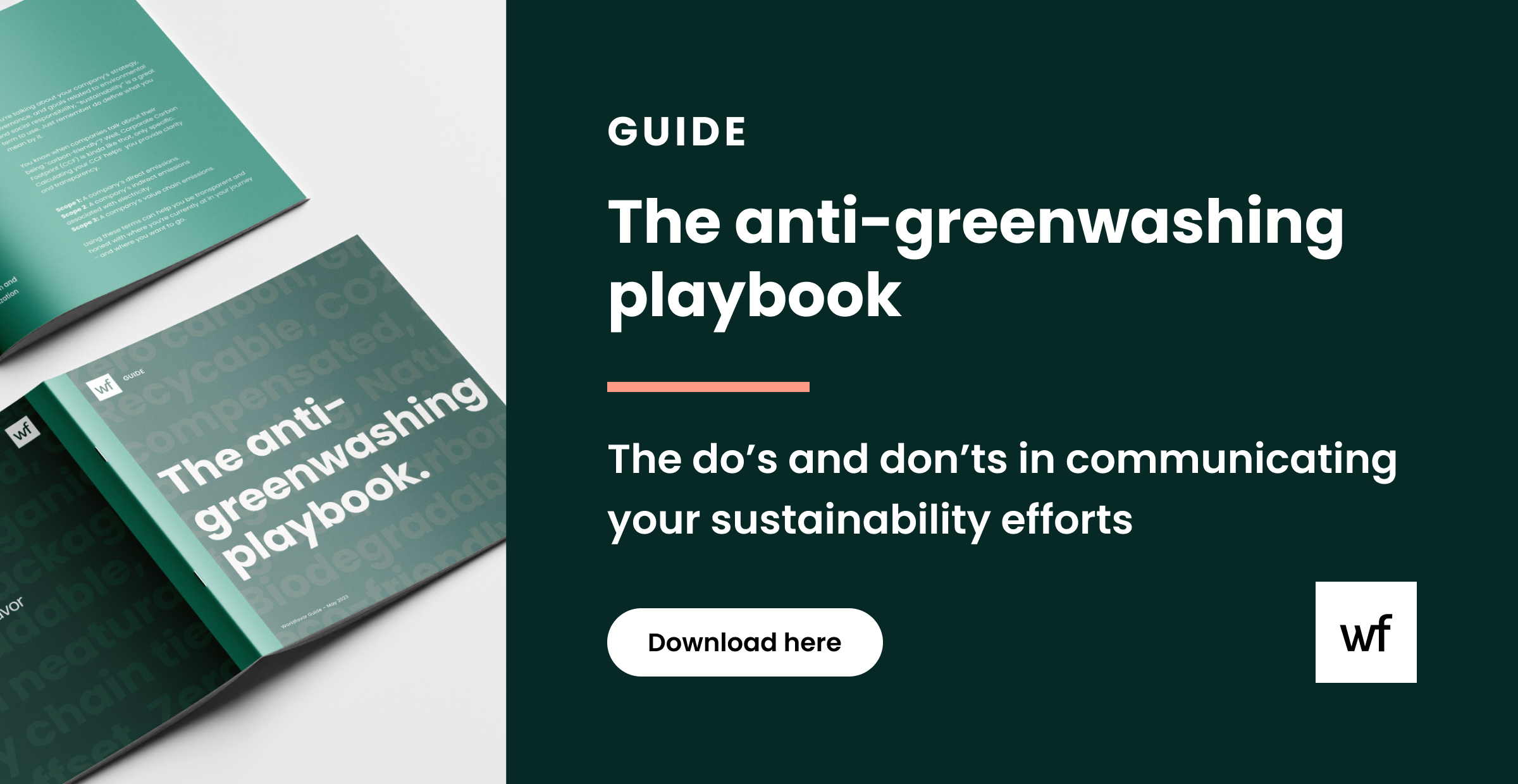How to address and avoid unintentional greenwashing

Whether you read about it in a news article, already discussed it in your meetings, or heard it from a colleague – greenwashing is starting to influence the decisions of investors and consumers more and more.
Are you aware that unintentional greenwashing can happen to any business? And that being uncareful can lead to devastating consequences?
To broaden the understanding of this important matter, we decided to dedicate a whole webinar on the topic. Two experts from Worldfavor, together with Bruno Güemes from Amfori and Kevin Gelsi from Nudie Jeans sat down and discussed what it means, its consequences and shared their hands-on tips and best practices.
In this blog, we present to you the key takeaways from the webinar, such as why unintentional greenwashing is harmful and actionable tips on how to prevent it.
What is greenwashing and when does it become unintentional?
- Greenwashing is when a company appears to be environmentally conscious for marketing purposes but isn’t making any efforts/work to develop its sustainability.
- Greenwashing becomes unintentional when a company truly believes that they are being environmentally responsible and communicates this to the wider public. When in reality (many times without their knowledge), their sustainability work is less substantial than they originally thought.
4 key takeaways for addressing unintentional greenwashing:
1. Greenwashing can be harmful in various ways
First of all, greenwashing may be harmful to both your business and society. Here are four reasons why:- It undermines the trust for business as a positive force in a sustainable transformation.
- It simplifies the sustainability problems many businesses are actually facing by stating non-scientifically supported claims.
- It misleads investments, talents, and sales in the wrong direction.
- ...and because many are guilty of it, even without knowing!

2. How to prevent unintentional greenwashing
Luckily, there is a way to prevent unintentional greenwashing and avoid its harmful outcomes, namely transparency. Why?
First, transparency tells us the full story of how businesses operate. When sustainability claims are correct and transparent, we become aware of what businesses do right and what they need to work more on. When companies stop hiding their wrongs – the playing field of sustainability is evened out, and we can start tackling the actual problems.
Secondly, full transparency also educates businesses, investors, and consumers on how a company operates. When transparency is aspired for, no false promises are built between businesses and their stakeholders, and in that way fewer promises are broken.
Thirdly, transparency creates fair competition between companies since regulations only can support that issue to a certain level.
And lastly, transparency provides a healthy baseline from which we can transform both as operating businesses and towards sustainability – one step at a time, without stumbling upon any harmful pitfalls along the way.
3. Learn from your past mistakes
Bruno Güemes, the Environmental Programmes Lead at Amfori, pointed out that learning from your mistakes is a natural part of working within the field.
During the webinar, Bruno shared his 3 best tips on the matter:
- It is important to remember that greenwashing, unintentional or not, can happen. It is, therefore, important to learn from it, not just put blame on it, and not be afraid to become more sustainable.
- Like spiderman, great power comes with great responsibility – big claims require big evidence.
- Support legislation trends: It is important to have coherent, global legislations that are united in how we should measure and report our claims. With too many different standards and ways, it becomes more difficult for investors and consumers to compare the same product.
4. Have a clear plan for avoiding unintentional greenwashing
Kevin Gelsi, Sustainability Coordinator at Nudie Jeans, emphasized that having a clear plan is critical when working within sustainability, to avoid hollow promises.
“This is a learning process for all of us, we just need to team up on the responsibility.”
Kevin shared some of his key tips throughout the webinar, which were the following:
- Companies' set targets need to be verified and have a clear plan to avoid hollow promises.
- The data companies have should decide what they are communicating.
- It is critical to have full disclosure online.
- Companies have to have harmonization of different methodologies to make certain comparisons. They should do first, talk later, and be critical about how things are perceived by the average consumer.
Related blog posts you might like:







%20as%20the%20deadline%20approaches.%20Learn%20about%20compliance%20requirements%2c%20potential%20delays%2c%20and%20key%20updates..png)

